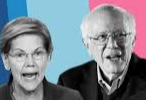Pundits increasingly describe West
Virginia Senator Joe Manchin as the second most powerful Democrat in the country or as a royal pain. Maybe he’s both. That’s what makes taking a hard look at the 73 - year old third term senator and former governor of the Mountain state worthwhile. Manchin now plays a huge role in every political calculation in Washington and he’s apparently enjoying it.With Democratic control of the
Manchin isn’t on board with the size of Biden’s $2 trillion infrastructure bill. He says he wants a bipartisan infrastructure deal that doesn’t “abandon” Republicans.
So, we ask: what’s up with Manchin. We look at the same facts, but see different things:
Republican Appearance?
Understanding Manchin requires understanding West Virginia. The state is 92 percent white, four percent black, 0.997 percent Hispanic, and 0.737 percent Asian. It’s wracked by poverty, addiction, and low household incomes. Richard Ojeda, a West Virginia politician says the choices for high school graduates are, “dig coal, sell dope, or join the Army.”
Manchin, nonetheless, has maintained his senate seat since 2012. Until Biden’s election, Manchin was relatively insignificant. Now holding a decisive vote, he has become significant. Conservative votes increase his re-election prospects. He is not beholden to Democrats. They need him more than he needs them. He might be the only Democrat capable of holding that seat.
West Virginian Christopher Reagan, Jr. recently wrote in the Atlantic that “Manchin does not have an overarching ideology.” True? Perhaps Manchin votes conservatively with political calculation. He voted to confirm more than 100 of Trump’s nominees. None required his vote. He voted for Brett Kavanaugh’s Supreme Court nomination after it became clear Republicans had enough votes for confirmation.
Manchin voted to save Obama Care,saying Medicaid expansion was good for West Virginia. While he made sure top income earners were excluded from Biden’s stimulus package, he voted ‘yes.’ He agrees that if Republicans won’t support an infrastructure package Biden will have to proceed without them.
Will Manchin become a Republican? He’s not fond of GOP leader Mitch McConnell who vowed he’d “crush Manchin like a grape” in the 2018 midterms. After his three-point victory, Manchin delivered a jar of hand crushed grape jelly to McConnell’s office.
Manchin said of Biden in The Hill, “I
Manchin may not be an ideologue. But, he’s a Democrat in a state where Democrats are an endangered species.
Henry: Mixed Motives?
It seems Manchin has different values
The turn in his West Virginia constituency away from its Democratic roots likely explains some of his actions. Manchin can win in his state, but he’s not so popular he can deviate far from the views of white West Virginians. If he seeks another term in 2024, he’ll find
But home state political considerations
may not totally explain Manchin. Perhaps he believes in what he espouses, even if he’s not an ideologue. Beyond that, Manchin occupies a unique position in the American government. He has some control over the nation’s agenda. That he can use that control in service of his own political survival could mix with principle and the hubris all political figures experience when other people must come to them for things they want. Maybe all of that is going on with Joe Manchin.
Rob: All About West
Virginia
As much as any state, West Virginia symbolizes the changing appeals of America’s two parties. West Virginia
Culture plays a huge role in this. When the Democratic Party became the party of protecting reproductive freedom, promoting LGBQT rights, and supporting gun safety measures, West Virginia’s white voters fled. Those issues drive the margins Republicans rolled up in recent presidential elections. Manchin knows where the voters are in his state and he’s not risking getting on the wrong side of them, economically or culturally.








































